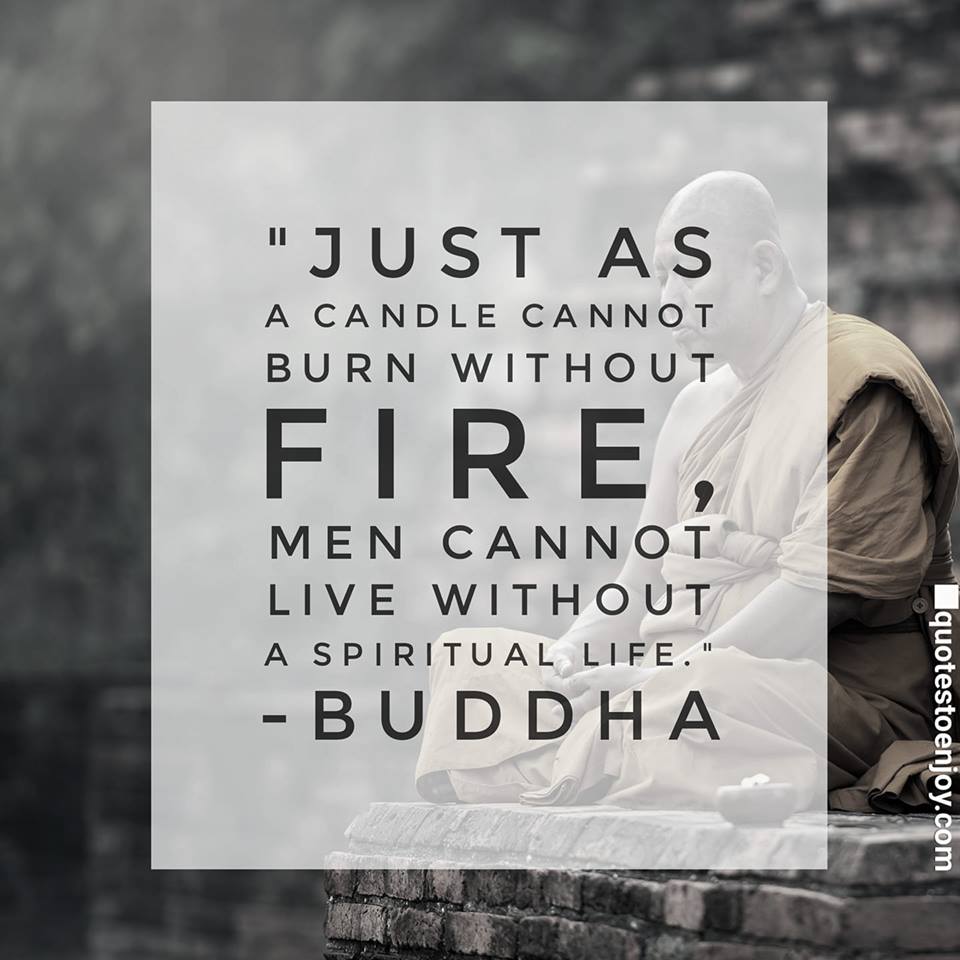In the rich tapestry of human existence, the nexus between spirituality and the well-being of individuals is an intriguing subject, especially within the context of Bahá’í teachings. Central to this tradition is the profound understanding that a spiritually nourished life is not merely an optional embellishment of living; rather, it is intrinsic to the very fabric of human existence. The Bahá’í perspective champions the conception that neglecting the spiritual dimension renders one akin to a flame deprived of its essential fuel.
At its essence, the teachings of Bahá’u’lláh elucidate the pivotal role of spiritual life, positing that it is through the cultivation of the soul that individuals achieve true fulfillment. This article endeavors to explore the multifaceted implications of these teachings, examining why men—indeed all humanity—cannot thrive without a committed engagement with the spiritual realm.
The Interrelationship of Spiritual and Material Life
Bahá’í philosophy posits an inherent interdependence between the material and spiritual dimensions of human experience. This duality suggests that while material pursuits can offer temporary satisfaction, they fall short of engendering lasting contentment. The spiritual life serves as the bedrock that grounds individuals, providing clarity and purpose amidst the vicissitudes of the physical world. In this view, spirituality anchors one’s existence, offering a lens through which the myriad challenges of life are navigated with grace and resilience.
The Concept of the Inner Self
At the heart of the Bahá’í teachings lies the notion of the inner self—the spiritual essence inherent in every person, which transcends the transient concerns of the material world. This inner self is described as a mirror reflecting divine attributes and qualities. Engaging actively with spirituality allows individuals to polish this mirror, revealing their true nature and potential. The process of spiritual development, therefore, becomes a transformative journey, inviting individuals to explore profound questions about existence, purpose, and their relationship with the divine.
Spiritual Practices: A Pathway to Growth
Engagement in spiritual practices is a cornerstone of nurturing the spiritual life. In the Bahá’í context, prayer, meditation, and acts of service are not mere rituals but essential practices that facilitate a deeper connection with the Divine. Prayers are considered not only a means of communication with God but also a source of strength during times of difficulty. These practices cultivate virtues such as love, compassion, and patience, fostering an environment conducive to spiritual growth.
Additionally, meditation serves as a powerful tool to quiet the mind, allowing individuals to transcend the chaos of daily existence. Through introspection and reflection, one can discern the whispers of the soul, leading to insights that nourish one’s spiritual journey. Acts of service further exemplify the embodiment of spiritual teachings, as they prompt individuals to extend love and kindness to others, reinforcing the interconnectedness of humanity.
The Role of Community in Spiritual Development
The Bahá’í community plays an indispensable role in individual spiritual development. Within this framework, the concept of collective spirituality emerges, emphasizing the importance of unity and collaboration among believers. The community acts as a nurturing soil where individuals can thrive, drawing strength and inspiration from one another. It becomes a space for mutual support, where shared experiences deepen understanding and foster a collective sense of belonging.
Furthermore, the Bahá’í teachings emphasize the significance of diversity within the community. The interaction among individuals from different backgrounds and cultures not only enriches the spiritual experience but also reflects the harmony inherent in the fabric of creation. This communal aspect of spirituality highlights the importance of service and consultation, inviting individuals to contribute their unique capacities and insights for the betterment of all.
The Spiritualization of Society
As individuals engage in spiritual development, the implications extend beyond personal fulfillment; they ripple outward, influencing society at large. The Bahá’í teachings advocate for the spiritualization of society, proposing that a thriving community is built upon the principles of justice, equity, and love. Individual spiritual growth catalyzes social transformation, encapsulating the idea that when people nurture their spiritual lives, they become agents of positive change.
Projects and initiatives anchored in service to humanity exemplify how personal spirituality translates into collective action. From educational pursuits to health initiatives, the Bahá’í community actively seeks to uplift society through principled actions that reflect spiritual values. In this way, the teachings underscore the belief that a spiritually enriched population is essential for the prosperity and advancement of humanity as a whole.
The Consequences of Neglecting the Spiritual Dimension
The ramifications of disregarding the spiritual aspect of life are manifold. A society devoid of spiritual values succumbs to disconnection, despair, and conflict. Individuals who neglect this dimension may find themselves caught in a relentless cycle of material pursuits, leading ultimately to a profound sense of emptiness. The Bahá’í teachings offer a clarion call to mankind, urging an awakening to the transformative power of spirituality, lest the essential spirit of humanity dims.
Conclusion: The Imperative of Spiritual Life
In conclusion, the Bahá’í teachings unequivocally affirm that men cannot live without a spiritual life. It is the light that illuminates the path of existence, providing meaning and purpose in a world often shrouded in darkness. The journey toward spiritual development is not a solitary endeavor but a communal aspiration that elevates the entirety of humanity. Embracing spirituality is not merely a choice; it is a necessity for a fulfilled and meaningful life, rooted in the recognition of the divine potential within each individual.
